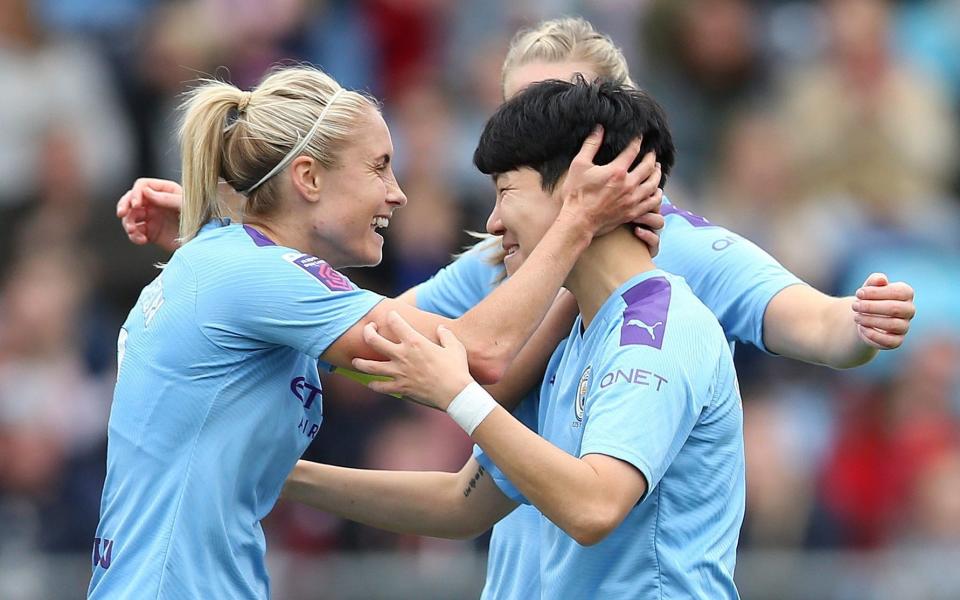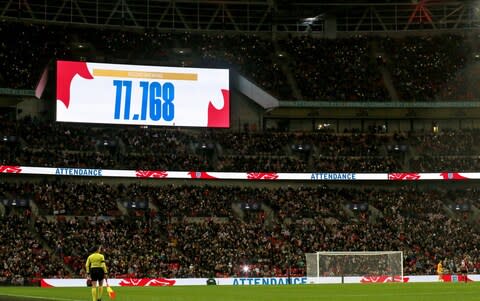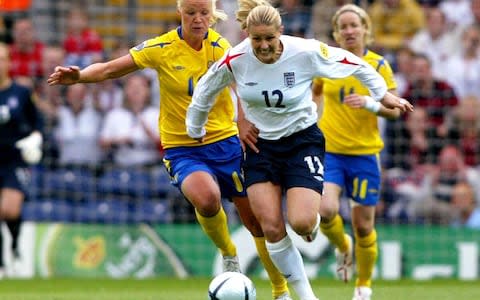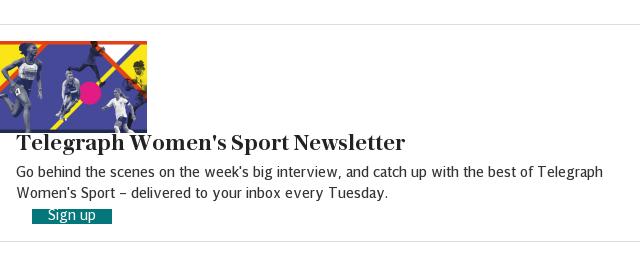My message is, if you’ve never seen women’s football before, go and watch it. The whole perception of the game has changed


I looked at the crowd at Wembley last Saturday: 77,768 people appreciating the England national team, appreciating women’s football, during the Lionesses’ 2-1 friendly defeat to Germany. I thought about my baby girl, Lucia: too young to kick a ball, but with so many more opportunities than I ever had.
Those 77,768 at Wembley now have a choice of 11 games in the top tier alone as part of Women’s Football Weekend. Among those are the Merseyside derby and the North London derby. Four of those fixtures will be played at men’s stadia.
To understand what this weekend means, I want to take you back to my childhood. I was the only girl in my town who played football. When my younger brother joined Garston Boys, I would go watch, racing after the balls when they rolled down the hill, dribbling them back in the hope they would ask me to play. One day, they did. I fitted right in. I was accepted.
It wasn’t until we started thumping teams on a Sunday afternoon, and I was getting goals and assists, that people noted that I was a girl. The opposition parents - the adults - didn’t like that. They didn’t like that I was a girl. They said I shouldn’t play, that they didn’t want me playing. This is a boys’ sport. Go play netball, hockey. Do something different. It didn’t affect me but some of the parents were quite hostile towards my dad. Teams started refusing to play against us. I had to join another team from the other part of town. Then the same thing happened. My dad would have to sit me down and tell me, all over again, and promise to try and find another team.
I remember crying to my dad, not understanding why I couldn’t do something I loved. It was his idea to find a girls’ team. Before then, I had no idea women’s football existed.

I played for Wembley Ladies, paying a £70 yearly fee, while working in McDonald’s and a dogs kennel. I was playing for England and I wrote to Adidas. All the men had boot deals and I hoped they could help me, but I got a letter back that said, sorry - we don’t support women’s football.
My vision was always to leave England because the game wasn’t even respected. It was just nothing, really. I wanted to be a professional. And if I couldn’t, I probably wouldn’t have played anymore. In England, I was only training two nights a week, from eight to ten at night. It wasn’t enough.

England was playing catch-up to America. Arsenal were part-time. They would give jobs to some players within the club structure: washing the kit, coaching, training to be a physio like Jayne Ludlow, the Wales manager. The year we won the quadruple, we had our own training programmes from England, because Arsenal weren’t in the place to hire an exercise scientist qualified to write those. Us England players were put on a full-time training programme that we would carry out by ourselves, and we’d keep a log and report back. It was all on us individually to be better as a team.
I made a bit of a name for myself after the 2007 World Cup and I remember being asked to go on the Jonathan Ross Show. He was asking me: ‘Do you play with the same number of players? Do you swap shirts?’ It was cringeworthy and I said to him: ‘Would you ask the same question to a man?’ I remember having a conversation with him in the green room before because at that point, that’s all men would joke about when it came to women’s football. ‘Do you swap shirts? Do you shower together?’ I would think, how pathetic are these people? I was sick of hearing the same comments. You just weren’t valued or respected as a female footballer.

This weekend, the likes of Jordan Nobbs, Fran Kirby, Ellen White, Steph Houghton and Leah Williamson will reap the benefits of my era. We’ve fought for all this. They’re all full-time professionals and different things are coming their way from the game. It’s fantastic to see where the game was all those years ago and where it is now.
The product on the field is so much better than when I started playing. I can understand why people probably weren’t as interested in women’s football back then because it was a lot slower. It would be, as you’re training twice a week and holding down a job. It was a hobby for a lot of us, but now they’re supported in every way.
Something needs to happen after this weekend, too - but I don’t have the answer. I think it’s still important that we play in big stadiums and that you promote and push women's football. The players are accessible after the games and it’s vital we keep that. The players have a duty to encourage girls to have a vision. There are jobs for women in football. When I was growing up, you didn’t see any women involved - not as doctors, or physios, or players, or journalists. Now, you do.

My message to you, if you’ve never seen women’s football before, is go and watch it, and don’t compare it to men’s football. They’re different entities. Men are faster, fitter and stronger, but you can enjoy women’s football. It’s still technical, fast-paced and teams are well-coached. People are having conversations about it and the whole perception of the women’s game has changed.
Kelly Smith is a Barclays Football Ambassador. Barclays are the first title sponsor of The FA Women’s Super League

